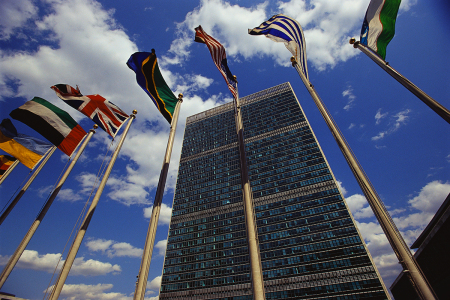United Nations experts warn Nigerian blasphemy laws violate international human rights

United Nations human rights experts have issued a joint letter to Nigeria’s government, stating that the country’s blasphemy laws infringe on international human rights standards.
The letter, whose signatories include five special rapporteurs, is focused on the May 2022 killing of Deborah Emmanuel Yakubu and the imprisonment of Rhoda Jatau, said the human rights group ADF International, one of the organizations that appealed to the United Nations as a result of which this letter was sent to the Nigerian government.

Both women are Christians and were accused of blasphemy, says the letter, which has been made public after a 60-day confidentiality period. Blasphemy laws have been “shown to violate freedom of religion and belief” and “fuel stereotyping, stigmatization, discrimination and incitement to violence.”
Yakubu was murdered and set on fire by classmates for sharing her Christian faith. And Jatau, a Christian mother of five, has been in prison for sharing a video condemning Yakubu’s killing. Both cases “appear to be related to the legitimate exercise of the right to freedom of thought, conscience and religion and of freedom of opinion and expression,” the U.N. experts said in the statement.
Jatau was arrested in Bauchi state after receiving a WhatsApp message from Ghana condemning the gruesome killing of Yakubu.
The U.N. special rapporteurs who signed the letter include Nazila Ghanea, Matthew Gillett, Morris Tidball-Binz, Irene Khan and Fernand de Varennes.
The Nigerian government has yet to respond to the letter, which might be sent to the U.N.’s Working Group on Arbitrary Detention concerning Jatau’s case.
Giorgio Mazzoli, Director of U.N. Advocacy for ADF International, called for the release of Jatau. Joseph Danboyi, lead counsel for her case, said that the international community’s concerns are appreciated and hopes for her release are high.
Rhoda’s next hearing is set for Nov. 28.

The U.N. letter was backed by the advocacy groups Christian Solidarity International and Jubilee Campaign, alongside ADF International, which is providing legal support for Jatau.
The experts warned that blasphemy laws legitimize negative attitudes toward religious minorities and encourage acts of violence.
Yakubu was a university student in Sokoto State when she was killed by a Muslim mob for thanking Jesus on social media for helping her pass an exam. Jatau was targeted by a mob and arrested for condemning Yakubu’s murder on WhatsApp. Her trial began in December 2022, and she has been denied bail multiple times.
Sean Nelson, Legal Counsel for Global Religious Freedom for ADF International, called for the eradication of blasphemy laws in Nigeria.
The persecution of Christians in Nigeria is severe. Of the over 5,500 Christians killed for their faith globally last year, 90% were Nigerian, noted ADF International, which is also supporting Sufi Muslim musician Yahaya Sharif-Aminu, sentenced to death for sharing “blasphemous” song lyrics on WhatsApp.
Yahaya has been in prison for over three-and-a-half years.
According to a previous report by the U.S.-based persecution watchdog International Christian Concern, Nigeria was one of the world’s top “Persecutors of the Year” for its treatment of Christians in 2021. The report stated that 50,000 to 70,000 Christians had been killed in Nigeria since 2000.





















